The world's weirdest economies
Economic oddities from around the globe
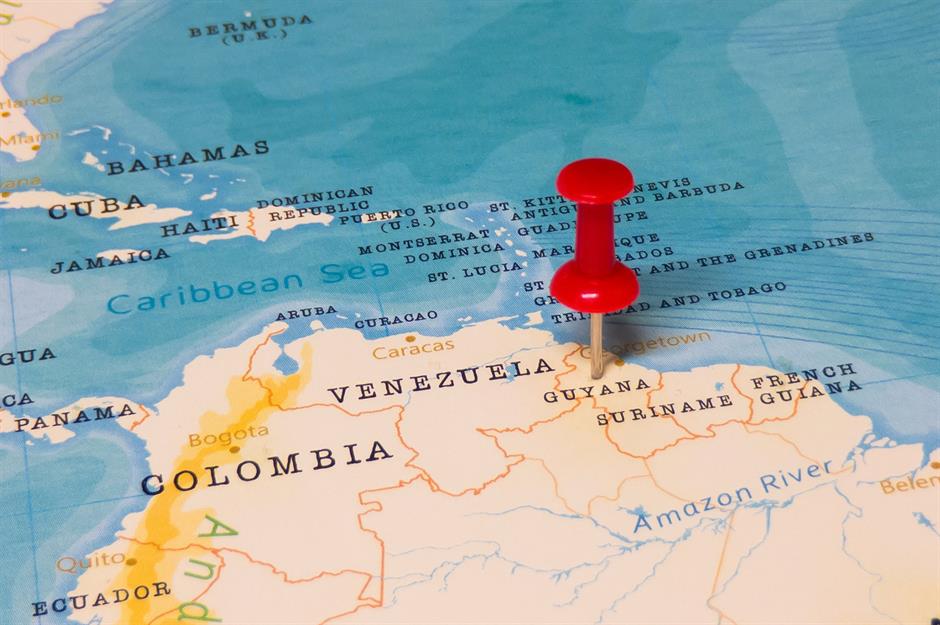
Some of the planet's economies are downright bizarre. Did you know, for example, that one nation makes most of its money from an internet domain name?
From an economy skewered by multinationals to one that's massively affected by the price of milk, read on to discover seven of the world's most unusual economies.
All dollar amounts in US dollars unless otherwise stated.
Tuvalu
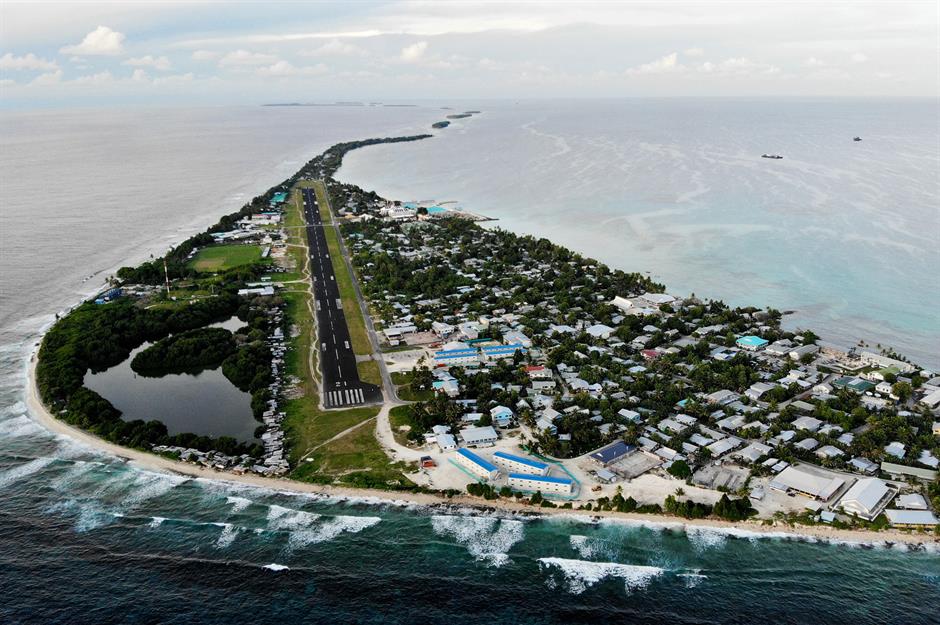
As economic mainstays go, this is one of the most curious: an internet domain name. The tiny Pacific island nation of Tuvalu, which has a population of just 11,000, is making millions by licencing out its lucrative .tv URL suffix.
The country was assigned the serendipitous suffix, coincidentally the worldwide abbreviation for television, in 1995 – and hasn't looked back. In the late 1990s, Tuvalu's government teamed up with a Californian firm and finalised a $50 million leasing deal (the equivalent of $95m/£75m in today's money), which was transferred in 2001 to a company called Verisign.
Tuvalu: internet domain moneyspinner

The island nation made around $2 million (£1.6m) a year from the Verisign deal up to 2011, when the annual payment increased to $5 million (£4m). Thanks to the success of Twitch.tv and the proliferation of streaming services, the .tv suffix soared in prestige and value during the 2010s.
Luckily for Tuvalu, its contract with Verisign came up for renewal in 2021. Capitalising on the popularity of the domain name, the country wasted no time signing a plum deal with GoDaddy that's estimated to be worth $10 million (£8m) a year. This represents a sixth of the nation's GDP.
Sponsored Content
Tuvalu: key government funding source
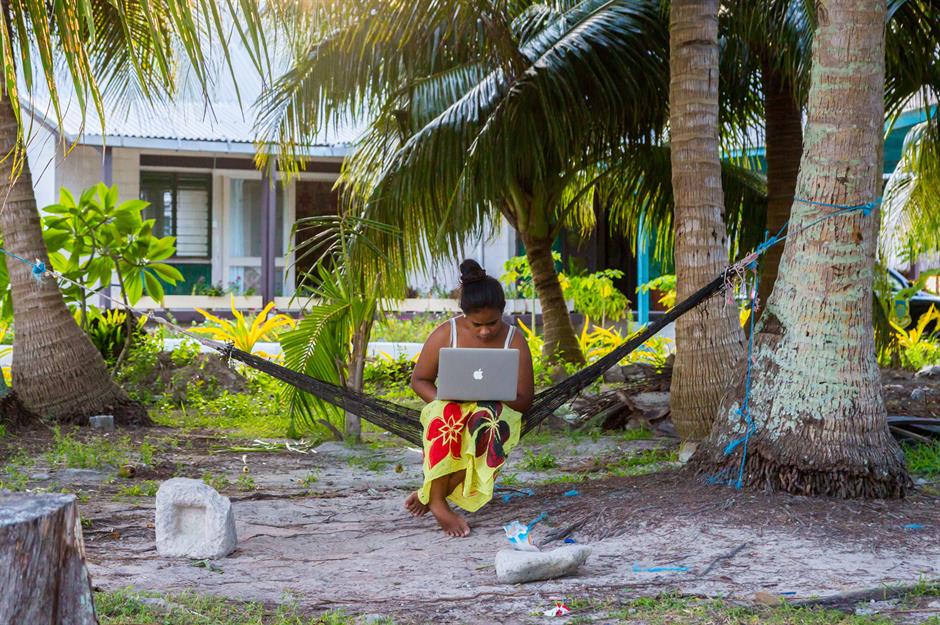
The windfall has been a boon for the country, funding everything from hospitals and schools to road paving schemes and the expansion of the electricity grid. Tuvalu's government is even using some of the proceeds to help bankroll its Future Now Project, which aims to mitigate the effects of climate change. (The nation is one of the world's fastest-sinking countries and risks being completely wiped out due to rising sea levels.)
And Tuvalu isn't the only country that's got lucky with its domain name; Anguilla has recently started cashing in on its .ai suffix, which is on fire amid the artificial intelligence boom. The Caribbean territory is reportedly making a tidy $3 million (£2.4m) a month by licensing the letters, which is around a third of the government's monthly budget.
Djibouti
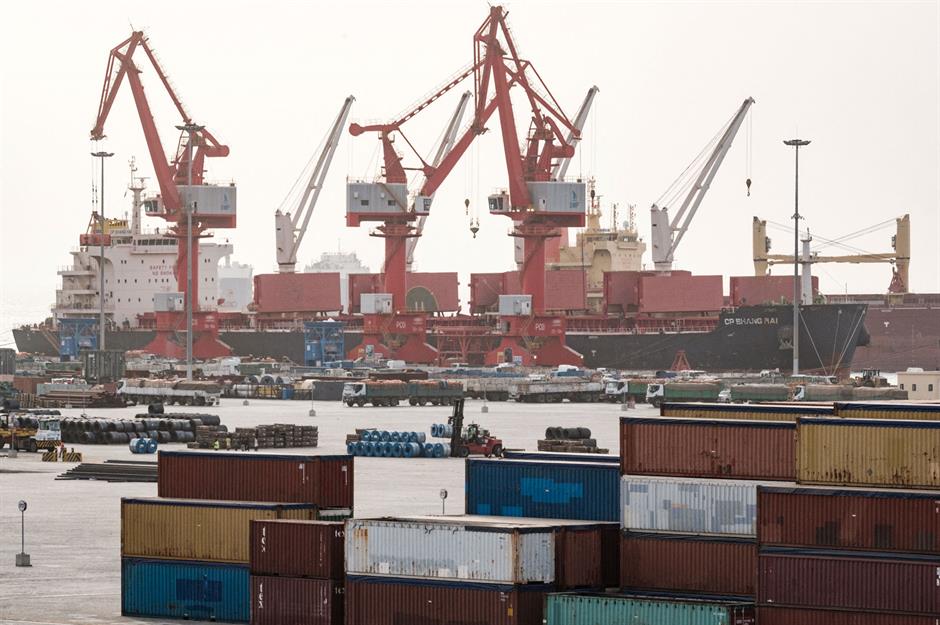
One of Africa's smallest sovereign states, Djibouti has a population of only 990,000. Trade is the country's economic bedrock, but weirdly, another nation's trade underpins its economy.
According to the World Bank, the country is powered by “a state-of-the-art port complex, among the most sophisticated in the world.” This complex handles an estimated 95% of Ethiopia's international trade, hence its importance.
Djibouti: trading conduit for Ethiopia

The bordering nation of Ethiopia is landlocked. For years, the country has been reliant on Djibouti to take care of its maritime trade, with the country's ports acting as a conduit for Ethiopia's exports (mainly coffee) and its numerous imports.
Ethiopia's economy dwarfs Djibouti's, with respective GDPs of $120.37 billion (£95bn) and $3.66 billion (£2.9bn) in 2022, according to Statista. It makes sense, then, that Ethiopia's trade activities dominate the port complex – especially as 80% of the country's manufacturing and services sectors depend on port activities.
Sponsored Content
Djibouti: threats to the economic mainstay

Djibouti may come to regret putting all its eggs in one basket, though. While the country's status as a trading hub has benefited of late from factors such as China's Belt and Road Initiative (BRI), which has seen a huge amount of Chinese investment in the tiny African nation, its economic success is closely intertwined with Ethiopia's – for better and worse.
Djibouti's ports have also suffered as a result of the Houthi attacks on Red Sea shipping. Amid rising tensions in the region, the latest threat is a proposed deal between Ethiopia and Somaliland, which could see Somaliland replace Djibouti as Ethiopia's maritime trading hub, spelling catastrophe for the Djiboutian economy.
Guyana
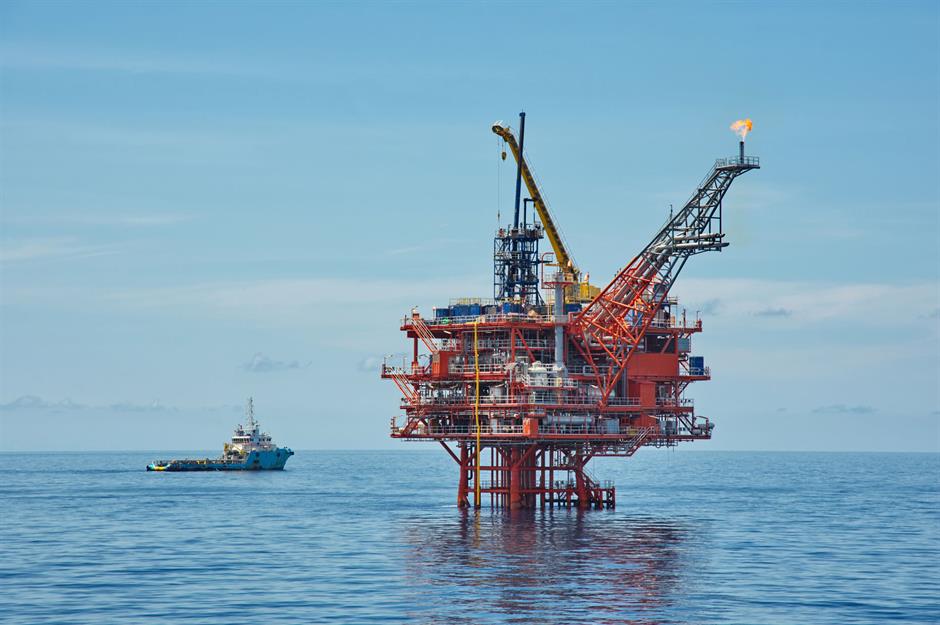
The world's fastest growing economy, Guyana is in the midst of an astonishing economic boom. Last year, growth came in at a sensational 33% and is expected to hit 44% by the end of 2024. No other economy's performance even comes close.
Guyana owes its bonanza to vast oil reserves discovered in recent years by a consortium led by ExxonMobil. The first deposits were pinpointed in 2015, and the US fossil fuel giant began production in the country in 2019.
Guyana: the oil bonanza in numbers

Guyana's oil production stood at just 1,200 barrels a day in 2019. The number has since skyrocketed to around 645,000.
Guyana has never been so flush with money. To date, the oil rush has made the country $3.5 billion (£2.7bn) according to The New York Times, and the government predicts annual oil revenues of $10 billion (£7.8bn) by 2030.
Sponsored Content
Guyana: spending the proceeds wisely

President Irfaan Ali says the proceeds are being spent on investing for the future and improving Guyana's infrastructure, healthcare, education, and agriculture. The powers-that-be have even pledged to fund projects that mitigate climate change, offsetting the damage the oil causes... to a limited extent.
In other words, the Guyanese government is going all out to avoid the dreaded resource curse. Also known as the paradox of plenty, the 'resource curse' is a phenomenon whereby countries with bountiful natural resources experience less growth or development than countries with fewer resources.
Having created a natural resource fund, the authorities will judiciously invest oil revenues rather than fritter them away, probably taking at least some of its cues from Norway...
Norway

Norway's economy has long been considered 'weird' among economists because it's avoided falling prey to the all-too-common resource curse, making it a stark outlier.
This tends to happen when resource-rich countries focus all their energy on one commodity, which can leave their economy at the mercy of its boom and bust cycles. Norway could have easily squandered its oil and natural gas, which were discovered in significant quantities in 1969. Instead, the Nordic nation took the sensible approach.
Norway: oil economy stewardship
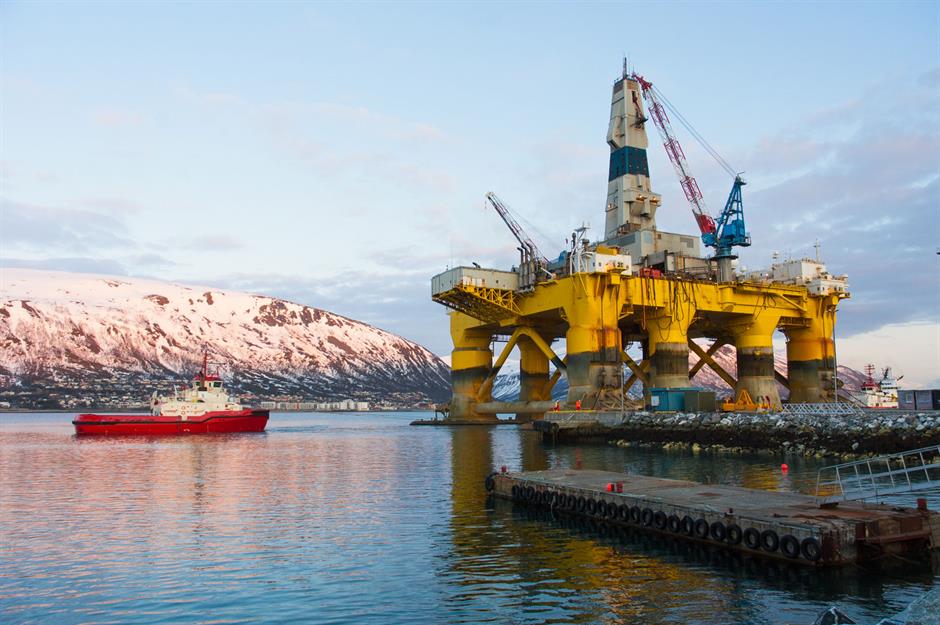
Guided by the government's 10 Commandments of Oil, a concerted effort was made to develop the sector to be as economically sustainable as possible, while considerable portions of the proceeds have been funnelled into the country's famed sovereign wealth fund. Now the largest sovereign fund in the world, it's currently valued at an astronomical $1.7 trillion (£1.3tn).
Sponsored Content
Norway: economic paradoxes

The Norwegian economy is also known for its paradoxes or puzzles. For instance, the country enjoys high levels of productivity and an ever-buoyant economy despite relatively scant research and development investment, an enigma that has bewildered economists for years.
Other contradictions include Norway's decision to embrace green energy and electric vehicles, despite its role as a major producer and exporter of oil and natural gas. As of 2024, electric vehicles outnumber petrol cars in the country.
Ireland

The weirdness of Ireland's economy came to the fore in 2016 when the country posted mind-boggling growth of 26%, later revised up to 34.4%. Half of this was attributed to the fact that Apple had moved its intellectual property to the country.
Dubbed 'leprechaun economics' by economist Paul Krugman, this skewering of GDP by foreign multinationals has characterised Ireland's economy in recent years.
Ireland: heaven for multinationals

Ireland is blessed with a disproportionate number of large, mainly American, multinationals. Drawn to the country's low corporate tax rates, these major global firms have made the country their HQ and have chosen to report their international earnings and assets there. This artificially distorts Ireland's GDP figures since much of the economic activity hasn't actually taken place in the country.
Still, Ireland's economic success is very real. While more telling measures such as gross national income (GNI) put Ireland's growth closer to its European peers, the figures are impressive nonetheless, with the country consistently ranking among the world's richest and most productive.
Sponsored Content
Ireland: mutual benefits

Drawn to the country on account of its EU membership and highly educated English-speaking workforce, as well as the favourable tax regime, multinationals are producing tangible high-value products in Ireland, from pharmaceuticals to consumer electronics. Plus, the taxes these businesses pay, though comparatively low, are filling Ireland's coffers – so much so the country is running a fat budget surplus.
Incredibly, the country also benefitted from an unexpected €14 billion ($14.8bn/£11.6bn) windfall earlier this year. In a surprise decision, the European Court of Justice (ECJ) ordered Apple to pay Ireland billions of euros in back taxes.
New Zealand

Milk is to New Zealand what oil is to petrostates. The country's dairy industry has long been a crucial part of the economy, generating annual revenues of $6.8 billion (£5.3bn).
Needless to say, the fluctuating price of milk can have a major effect on the nation's wider economy.
New Zealand: dairy price effect

When milk demand is low and prices subdued, New Zealand's export earnings tank and considerably less tax is collected from the country's dairy farmers. With demand for New Zealand's dairy exports low in slumping China, last year dairy cooperative Fonterra slashed the fixed farmgate milk price per kilo to as low as $3.62 (£2.86), which sparked an outcry.
Farmers warned lower prices would result in billions of dollars in lost revenue and cuts that would reverberate across New Zealand's economy.
Sponsored Content
New Zealand: milk's economic importance

This just goes to show the importance of milk and other dairy products to the country's economic wellbeing.
Fortunately, things have picked up this year, with the milk price per kilo currently set at between $4.53 (£3.58) and $4.89 (£3.86), so catastrophe appears to have been averted. Meanwhile, China has lifted all tariffs on Kiwi dairy products, and price forecasts are looking good for New Zealand. Rabobank expects the milk price per kilo to rise to $4.68 ($3.70) through 2024.
Bhutan

Bhutan stands out from other economies due to the way the government measures performance. Instead of concentrating on GDP and productivity, the small Himalayan kingdom of 800,000 people is primarily concerned with gross domestic happiness (GDH).
Bhutan adopted the GDH Index in 2008 when it was written into the country's constitution. It consists of nine domains and 33 development indicators covering living standards, health, education, psychological wellbeing and more.
Bhutan: gross domestic happiness
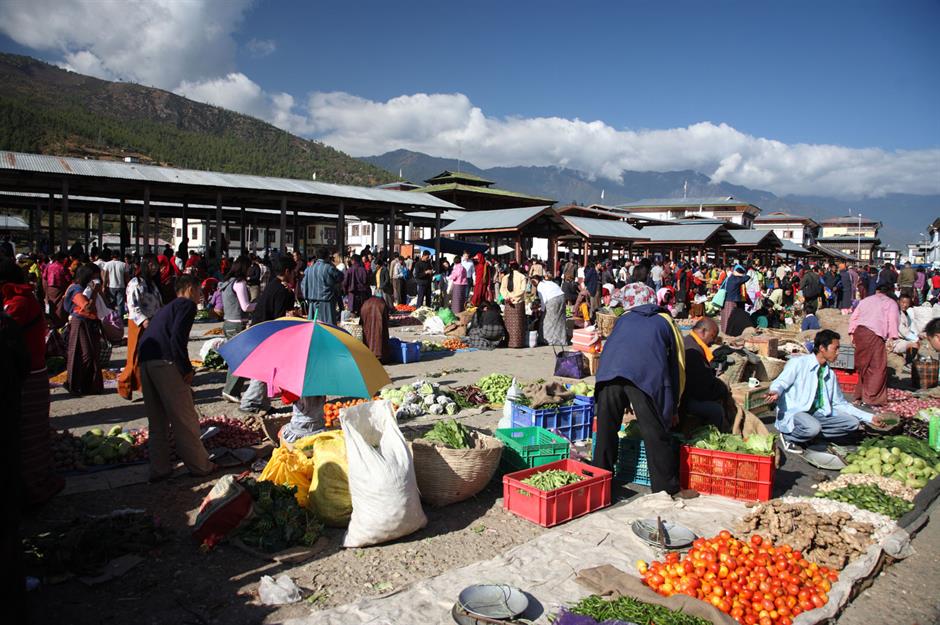
The country's government is devoted to increasing Bhutan's score on the index, which has increased significantly since 2008. This more human-centric approach to economic growth has actually resulted in excellent GDP growth averaging 7.5% a year while reducing poverty, increasing living standards across the board and protecting Bhutan's culture and environment.
A testament to the success of this ethos, Bhutan has seen poverty plummet. It also became the world's first carbon-negative country.
Sponsored Content
Bhutan: flourishing economy

The icing on the cake? Bhutan's graduation last year from the UN's Least Developed Country (LDC) category, which it had been stuck in since 1971. Other nations that boast this achievement include Vanuatu, Equatorial Guinea, Samoa, Maldives, Cabo Verde, and Botswana.
Bhutan is now classified as a middle-income country, which is quite the achievement for a once-impoverished nation that has chosen to put people over profit.
Now discover what the average person earns in different countries around the world
Comments
Be the first to comment
Do you want to comment on this article? You need to be signed in for this feature